- Category
- War in Ukraine
Russia Is Already at War with the UK, Just Not the Way You Think
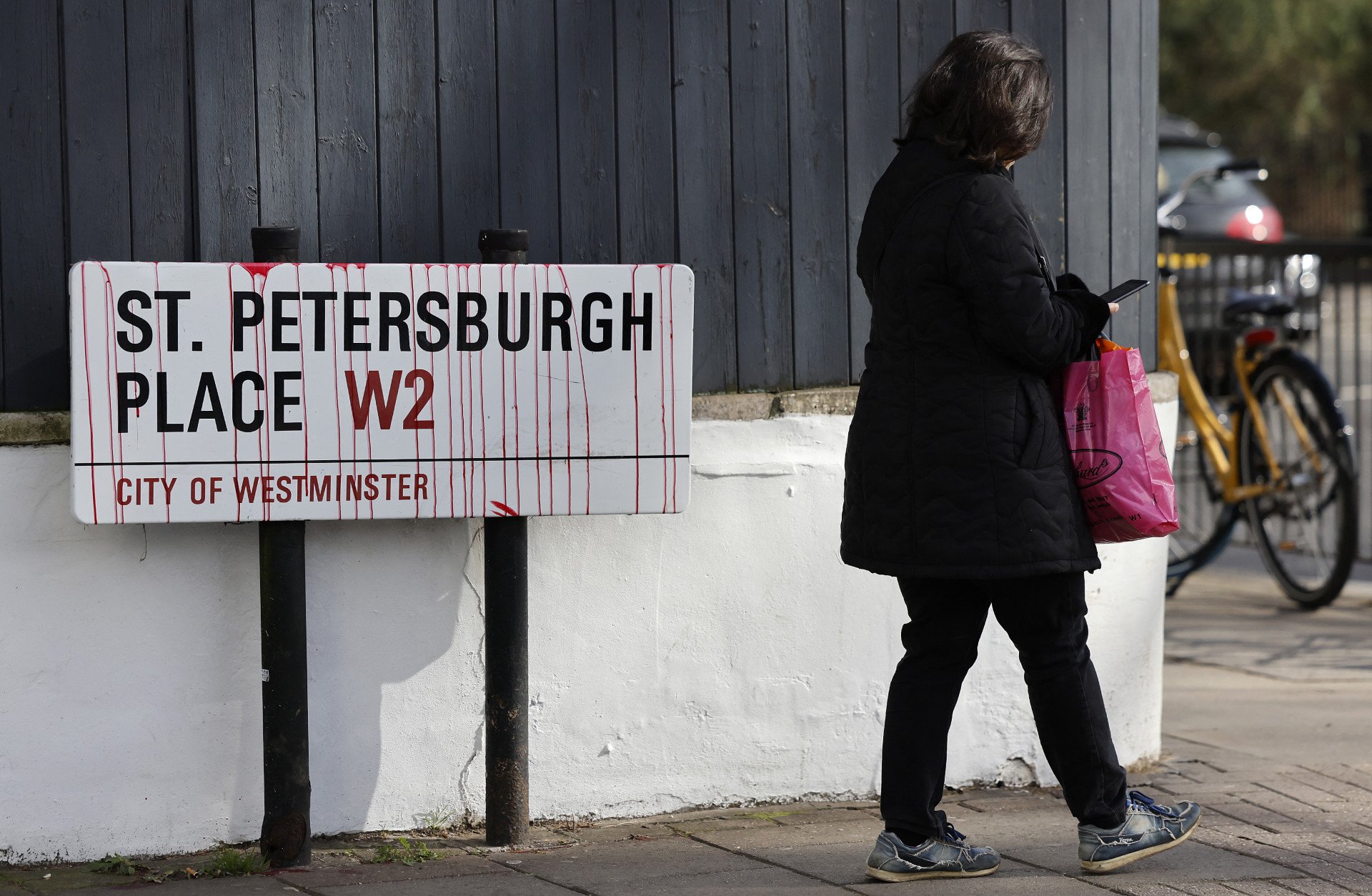
Espionage, sabotage, cyberattacks — Russia’s operations on UK soil and in its waters have escalated. Now, UK officials say the country is locked in a “grey zone war” with the Kremlin. But what does that mean — and is the UK too late to defend itself?
Russia’s spy sensors were discovered in UK waters — some washed ashore, others found by Royal Navy mine-hunting vessels — likely targeting the navy’s four Vanguard-class submarines capable of carrying nuclear missiles. Experts believe the Kremlin may also be mapping critical underwater infrastructure for sabotage.
The findings have prompted Tobias Ellwood, former UK defense and Foreign Office minister, to call for a huge expansion of the navy’s surveillance capability, confirming that the UK is “now in a greyzone war with Russia.”
Grey zone warfare refers to actions that fall between peace and open war, such as undermining oil and gas supplies, money laundering, and the use of espionage and sabotage.
Russia’s use of these sensors was “only half the story,” Ellwood told the Guardian, adding that the Kremlin has established “remote seabed platforms” off the UK coast to recharge sensors and map undersea cables for future attacks.
“Ninety percent of our data comes from the sea and 60% of gas comes from Norway by one line so you can see how vulnerable we are,” he said. “The scale of damage [they could do] is enormous and it’s deniable and it’s cheap to do. That’s the worrying dimension of all of this.”
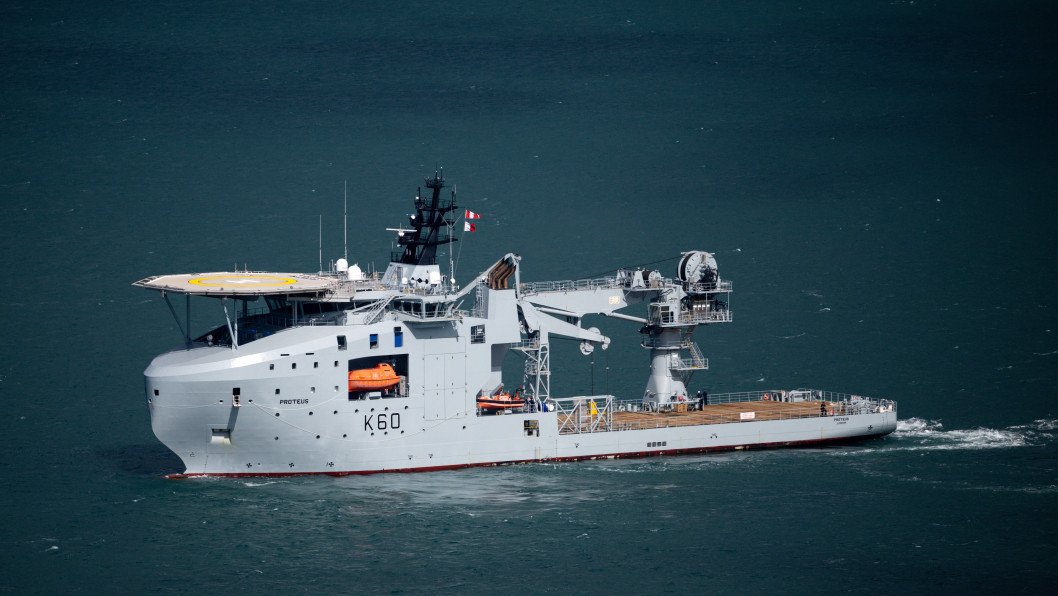
The Kremlin's military files, seen by the Financial Times in 2024, revealed 32 locations across NATO countries that Russia could strike with nuclear and conventional missiles. Three of the sites are based in the UK. The documents stressed the value of the Kremlin's warships, enabling Russia to hit its targets from all directions, according to reporters.
Russia’s Northern Fleet is smaller than during the Cold War, but still poses “the most stark” missile threat to the UK since then, said William Freer, a security fellow at the Council on Geostrategy.
“There is only a remote chance of a significant direct attack or invasion by Russia on the United Kingdom,” Admiral Sir Tony Radakin, Chief of the Defence Staff told RUSI , while stressing that the UK must remain vigilant and adapt to threats.
“Russian hostile acts on UK soil have ranged from the use of a deadly nerve agent in Salisbury, malign cyber incidents—which included targeting UK parliamentarians through spear-phishing campaigns—as well as espionage and arson,” the UK announced in April 2025.
The UK government is working to increase defense spending, place more sanctions on Russia, and has launched schemes to help identify Russia’s threat to the country's security. However, some experts say that the UK may be too late.
Russian ship in UK territorial waters
In January 2025, the Russian ship Yantar was spotted in UK territorial waters near the English Channel. Officially, Russia claims the ship is a research vessel for deep-sea rescues, but it is widely suspected to be a platform for intelligence gathering and sabotage.
I want President Putin to hear this message: We see you. We know what you are doing. And we will not shy away from robust action to protect this country.
John Healey
UK Secretary of State for Defence
This marks the second sighting, following an earlier incident in November 2024, confirmed by UK Defense Minister John Healey.
Russia's state-owned Parliamentary Newspaper described Yantar as outfitted with devices for deep-sea monitoring and accessing classified communication cables.
US officials are convinced that it’s capable of cutting and tampering with deep-sea cables and installing surveillance equipment on them.
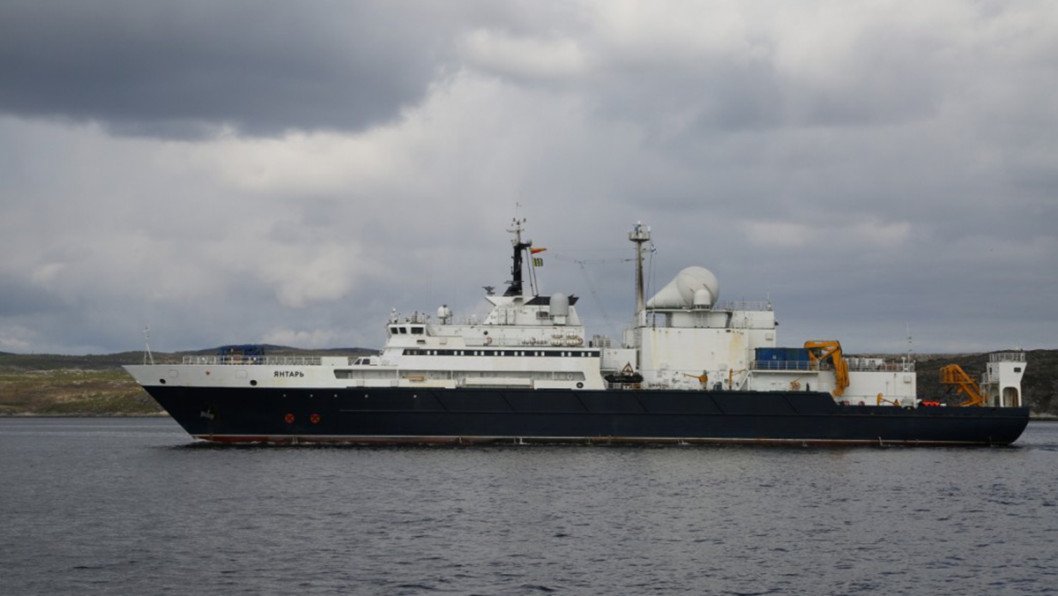
Russian spies in the UK
On March 7, 2025, three Bulgarian nationals based in the UK were convicted of spying for Russia on what police said was “an industrial scale”.
The group was nicknamed “the Minions” after the characters from the film Despicable Me, who serve the supervillain Gru. In a dark twist, “GRU” is also the acronym for Russia’s military intelligence agency, which controls special forces units and conducts covert operations.
UK prosecutors said a wanted fugitive, Jan Marsalek, tasked the British-based Bulgarian team with various operations.
Marsalek, an Austrian national, is entrenched in Russia’s private military company warfare, along with committing fraud and spying for Russia. An investigation in 2024 revealed that Russian authorities helped him escape and evade prosecution and found that he was, and could still be, hiding in Crimea using the identity of a Russian Orthodox priest.
One operation involved spying and plotting to kill Christo Grozev, a journalist with the investigative website Bellingcat, known for exposing Putin's murder machine, covering Russia's war on Ukraine, and reporting on the 2018 Salisbury poisoning of Sergei Skripal .
The group also targeted British-based Russian Roman Dobrokhotov, editor-in-chief of Russia’s outlet The Insider. Dobrokhotov has led investigations into Russian trolls, hackers, the invasion of Ukraine, GRU operations in Europe, and Russian government corruption.
Russia-linked Telegram channels are inciting terrorism in the UK
Hope Not Hate uncovered a Russian-linked Telegram network inciting terrorism and hate crimes across the UK, offering cash rewards for those conducting the crimes. The network has offered “£2,500 to anyone willing to burn a British police vehicle and a cash prize of £100 for videos of vandalism against mosques.”
The channels have also been hosting a “library of terrorism manuals, including instructions on how to make homemade explosives, remote detonators, landmines, and grenades with blueprints for 3D printers”
The channels pose as British nationals but Hope Not Hate identified several mistakes that revealed their likely Russian nationality.
Some of the channels within the network post a “non-stop stream of videos purporting to show its members murdering immigrants, committing arson attacks on family homes, and testing explosive devices in remote locations.”
Cyber attacks
A pro-Russian hacker group, Noname057(16), launched a series of cyber attacks on several councils in the UK. In October 2024, they claimed to have hit the Salford, Bury, Trafford, and Tameside council websites with a series of distributed denial-of-service (DDoS ) attacks.
Since Russia’s full-scale invasion, Noname057(16) has been spreading pro-Russian narratives and propaganda while launching DDoS attacks on government and commercial websites in Ukraine and more than 15 other countries—mostly NATO members and Ukraine’s allies.
While the attacks in 2024 had a low impact and temporarily disabled webpages, Russian hackers have persistently targeted the UK and Ukraine’s allies with cyber attacks, some far more dangerous than others.
The UK Government announced on February 11, 2025, further sanctions against a “predatory” Russian cybercrime syndicate responsible for aiding merciless ransomware attacks around the world, generating $1 billion from their victims globally, in 2023 alone.
They provided vital infrastructure for cybercriminals as they plan and execute attacks against the UK, and hosted hackers who share misinformation, child exploitation material, spam, and hate speech.
-a08c8f2980116518526f1c98d9bbae0c.png)
How the UK is targeting Russian hostilities
Britons are waking up to the weakness of their defense and deterrence
Edward Lucas
The Center for European Policy Analysis
Russia is to be put on the enhanced tier of the Foreign Influence Registration Scheme (FIRS), meaning anyone working for the Russian state in the UK will need to declare what they are doing or risk five years in prison, the government announced on April 1, 2025.
FIRS requires UK-based individuals agreeing to collaborate with Russia on certain activities to register their agreement within 10 days. This ranges from communications directly with anyone working in the UK’s government, to giving money or services to any UK national or individual, UK organizations or businesses receiving money, and even communicating publicly, from writing a newspaper article to a social media post for Russia.
For too long, the Kremlin has been responsible for unacceptable threats to our national security - from damaging cyber-attacks, malign attempts to interfere in our democratic processes, and attempted assassinations in this country.
Yvette Cooper
UK Home Secretary
“FIRS is a tool to help protect our democracy, economy, and society from covert, deceptive or otherwise harmful activities against UK interests,” the UK Government said. Russia is the second country to be placed on the highest tier due to the “significant and persistent threat Russia poses, which has only increased in recent years.”
In February 2025, the UK imposed the largest sanction package of over 100 entities, directly targeting those who continue to aid its illegal invasion of Ukraine.
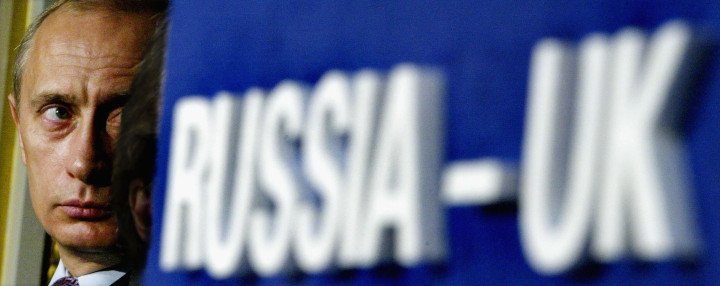
“The UK is working with our Allies to put Ukraine in the best position to achieve peace through strength,” the UK government announced, adding that the new sanctions will “target funds going into Putin’s war chest and propping up Russia’s kleptocratic system.”
On February 25, 2025, a day after the third anniversary of Russia’s invasion of Ukraine, UK Prime Minister Kier Starmer set the biggest sustained increase in defense spending since the Cold War, increasing to 2.5% of GDP from April 2027. He has also set an ambition to spend 3% of GDP on defense in the next parliament.
Starmer reiterated the UK’s commitment to securing a just and enduring peace in Ukraine, emphasizing the need for total deterrence against the modern hybrid threats the UK faces, from cyber-attacks to sabotage.
In an ever more dangerous world, increasing the resilience of our country so we can protect the British people, resist future shocks and bolster British interests, is vital.
Kier Starmer
Prime Minister of the UK
The UK is working with Nordic and Baltic states under the Nordic Warden initiative, which uses AI to monitor suspected Russian maritime activity, particularly in the Baltic Sea and the English Channel. UK officials are also openly discussing the possibility of reintroducing sea mines to defend against incursions.
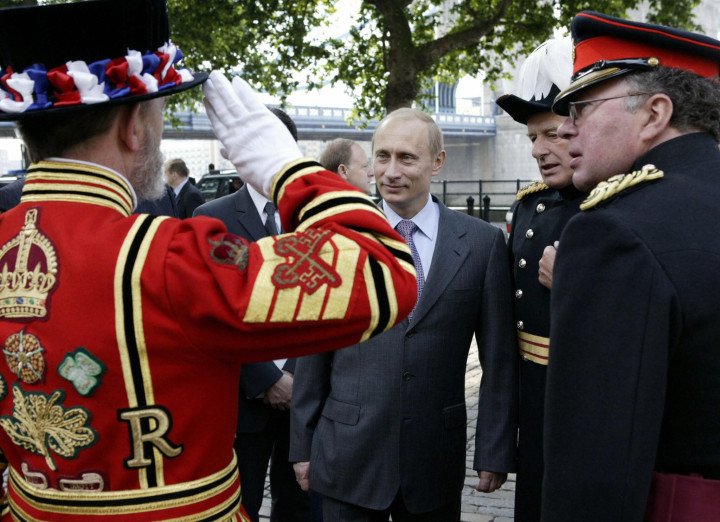
UK reacted too late, experts say
The UK and Europe have been too slow to react to Moscow’s advances, experts have been saying since 2014. After Russia invaded Crimea and the Donetsk and Luhansk regions in 2014, Poland and the Baltic states warned Western Europe about Putin, but were ignored.
That was Europe's first opportunity to confront Russia, and at that time, “Europeans underrated President Putin’s threats and the build-up of Russian military power near European borders,” Adérito Vicente, a researcher in the Department of Political and Social Sciences (SPS) at the European University Institute (EUI), said.
Europe’s reaction has been “too little too late” Vicente added in his Why Europe slept? The failure to prevent the war in Ukraine report in 2022. Vicente says that 2014 revealed Europe’s inability to protect Ukrainians and deter Russia from its full-scale invasion.
Since 2022, there has been a renewed appetite for military and defense, a shift in Europe’s security environment, and Russia’s invasion of Ukraine has been a turning point in Brussels’ approach toward Moscow.
Even with dramatic shifts in Europe’s approach, Edward Lucas at CEPA argues that the UK might be too late. He stated that the aforementioned cases of Russian attacks are neither a “revelation” nor surprising, and the UK has known about such incidents for years, with no retaliation.
In his report, Sea-Sick: the Not-So-Secret War, published April 7, 2025, Lucas says that Russia had years to plant all the sabotage devices, and that its probably too late to build all the defenses that the UK needs.
“The real story is not about Russian mischief or malign intent—it is about the failure of Britain and similar countries to build proper defense and deterrence," Lucas said. "We may finally understand that the real target of Russian hybrid warfare has been our decision-making."
-46f6afa2f66d31ff3df8ea1a8f5524ec.jpg)

-554f0711f15a880af68b2550a739eee4.jpg)



-206008aed5f329e86c52788e3e423f23.jpg)
-1afe8933c743567b9dae4cc5225a73cb.png)